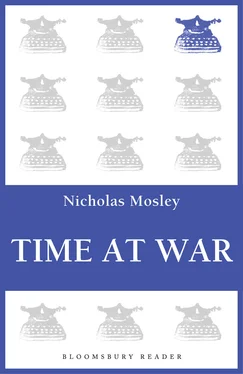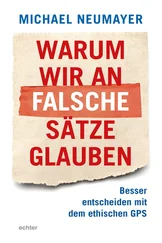I still do not think I have any pretensions about myself as a soldier. When things are not dangerously active I am intensely and professedly idle. Every minute I have to give to this war I grudge angrily. And when things are dangerously active I go about my business in a spirit of complete misery. And yet I have the reputation of being in action a model subaltern.
It is interesting to note that after 12 months of fighting I will forgive anyone the old failings — the boorishness, the stupidity, the dullness — if he does not possess the failings of a bad soldier. That boils down to the realisation that out here the only thing that matters tuppence in a man is his ability to be brave. That is the only standard by which one judges anyone. For if they are not brave, it is 10 to I that they are miserably hypocritical as well.
Now there are incredibly few people who do possess this virtue. Those who possess it least are those who preach most lustily about the holiness of the war crusade. Fortunately in my Battalion nearly everyone does possess it: they do not remain long if they don’t; and that is why I am able to get on very well with them, whereas before I would have been driven into my frenzy of petulance by their shortcomings. But this breeds tolerance for people who are fundamentally worthy. The war is a head-sweller to the few who fight it, but it produces a lofty, cynical, benign swollen head — which does not rant nor strut but maintains an almost reverent humility towards anyone who knows why and whereof it is swollen. So when you see me although you may find me complacent I hope it does not take too odious a form. On the whole I think the tolerance and humility with those who understand will be far more prominent than the other feelings. But you will find out!
I tried to explain to my sister the origins of my feeling an outsider. My sister and I had been very close as children: with both our parents so often away (my mother as well as my father had been for four years a Labour MP) we had come to depend on one another; we told each other fantasy stories in which we were literally orphans in a storm — marooned on a desert island or on a raft. My sister dealt with our situation with considerable boldness if not confidence; I was likely to get in desperate rages and try to hide myself away. Now my sister wrote to me that our brother Michael, aged twelve, was behaving in much the same way as I had done; and what should she do? In the same long letter in which I wrote to her about myself in the war, I wrote about what it seemed that such a child has to contend with –
The trouble begins when a child (or youth or what-have-you) has a constructively vivid imagination, an intolerant but quick mind, and a sensitive but intensely self-centred nature. Which is what I had and Mick has. So soon as such a child begins to think he will form certain ideas in his imagination which are made very strong and definite by the quickness and intolerance of his mind, and are very real to him owing to the virulence of his imagination. The most important of these ideas, owing to his self-centred nature, will be his ideas of himself and of how things and people ought to behave in relation to himself. Gradually as these ideas grow in clarity, and his sensitiveness and intolerance grow in intensity, he will have an increasing horror of anything that does not conform to these ideas, a horror which in some exaggerated cases becomes almost physical. Thus when he is faced with conditions which are antipathetic to his ideas, his revolt against them is spontaneous and unavoidable. In his revolt he can do one of two things. He can either try to change the conditions or he must run from them. But a child cannot change his conditions because he is neither strong enough nor has a definite enough idea what to change them to. So he sulks. He runs away. It is an almost physical reaction.
Does this explain my behaviour? I did not understand it at the time. All I knew was that in certain conditions I reacted in a way which I really could not control. I am not very clear even now as to what those conditions were, but you will remember the numerous examples as well as I. I think ‘artificiality’ and ‘unpleasantness’ were the chief characteristics of the conditions I abhorred. But these are vague terms, and it is fruitless to try to analyse them accurately. And the ‘artificiality’ or ‘unpleasantness’ was always relative only to me. Viewed dispassionately, there was very often nothing objectionable in the conditions at all. It was all a matter of how they acted on my frame of mind at the moment.
I wrote briefly and not analytically about my stammer –
On the surface I suppose it is a tragedy. Certainly without it I should have shone much more than I did at Eton. Even in the army it probably stops me from promotion. But the stammer forced me away from all superficial contacts, from all superficialities in fact. And although on the face of it this was unfortunate and forbade much material ‘success’, I am presumptuous enough to feel that it led to many developments in a more fundamental way. It taught me to think and to judge, to see things at more than their superficial values; to rely on more than affability to show my worth. If the stammer eventually goes, I am convinced it will have done me more good than harm. If it stays, at least it will have been of some advantage early in life, when I might so easily have become a vacant lout. I think myself it will go in time.
After Sorrento I found myself once more in what I described to my sister as ‘the full gaiety of the Naples winter season’. When I had reported back this time to the transit camp to learn what arrangements would be made to get me back to the battalion they told me that they had no papers about me and would be able to do nothing with me until they had. This seemed to have something to do with the uncertainty about my being classified as either London Irish Rifles or Rifle Brigade, or neither. This situation, of course, I felt suited me very well — not just now, in Naples, but in my feeling that I was by nature an outsider — not tied to any group. So I was encouraged by the authorities again to go off on my own, with this time no indication about when I should come back. It was too cold and wet to go to Ischia or Capri, so I set about looking for a room in the old part of Naples, by the harbour, where from tall buildings washing like flags was hung across narrow streets. This was the haunt of touts who would offer soldiers their ‘virgin’ sisters in return for cigarettes. I soon found a man who said he could find me a splendid apartment in return for very little money. So I was taken to a high unprepossessing building and up bleak flights of stairs to the home of an elderly and kind couple who showed me two beautifully furnished rooms, which they said I could rent. I moved in with my meagre kitbag, and sat on an antique sofa beneath an ornate gilded mirror, and I thought — This is the first place truly of my own that I have ever had; it gives rise to a form of ecstasy.
I took up again my correspondence with my father that seemed to represent a sanity-seeking journey in contrast to that of war –
Have just read the most enthralling little book called The Mysterious Universe by James Jeans. It appears that the physicists have indeed done away with the old theories of matter and energy, and have arrived by scientific means at much the same conclusions that Berkeley and Co hazarded in the 18th century. The point I find fascinating is the scientific conclusion that the universe as we know it cannot be composed of ultimate matter and energy, but only the reflections of ultimate reality in some Universal Mind. And we are only able to see these reflections as reflections again in our own mind. Now this is a very acceptable conclusion when it is come by scientifically, for although the Universal Mind seems to be the mind of a Pure Mathematician, and thus for ever somewhat beyond our comprehension, it does at least suggest that the Universal Mind has some affinity with our own feeble minds, thus giving us enormous significance in the universe when before it seemed as if we were of no account at all.
Читать дальше












